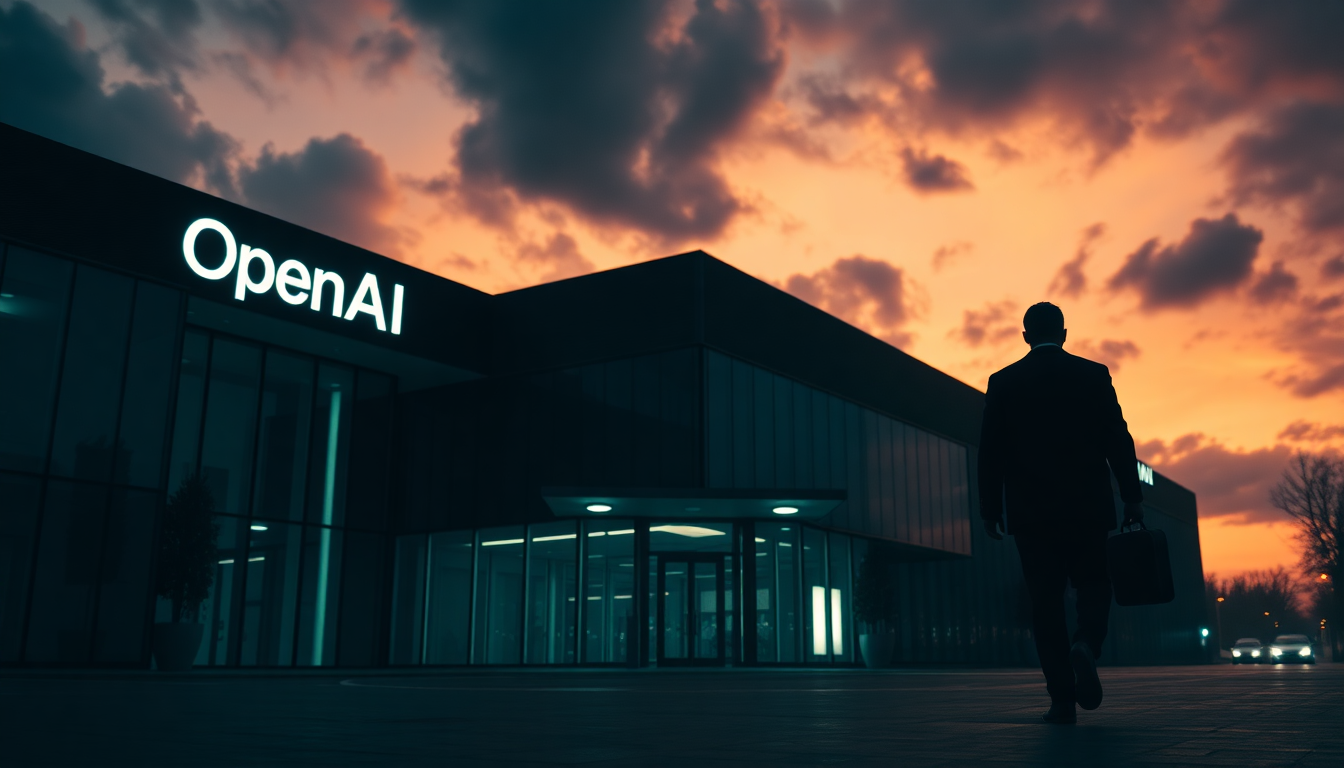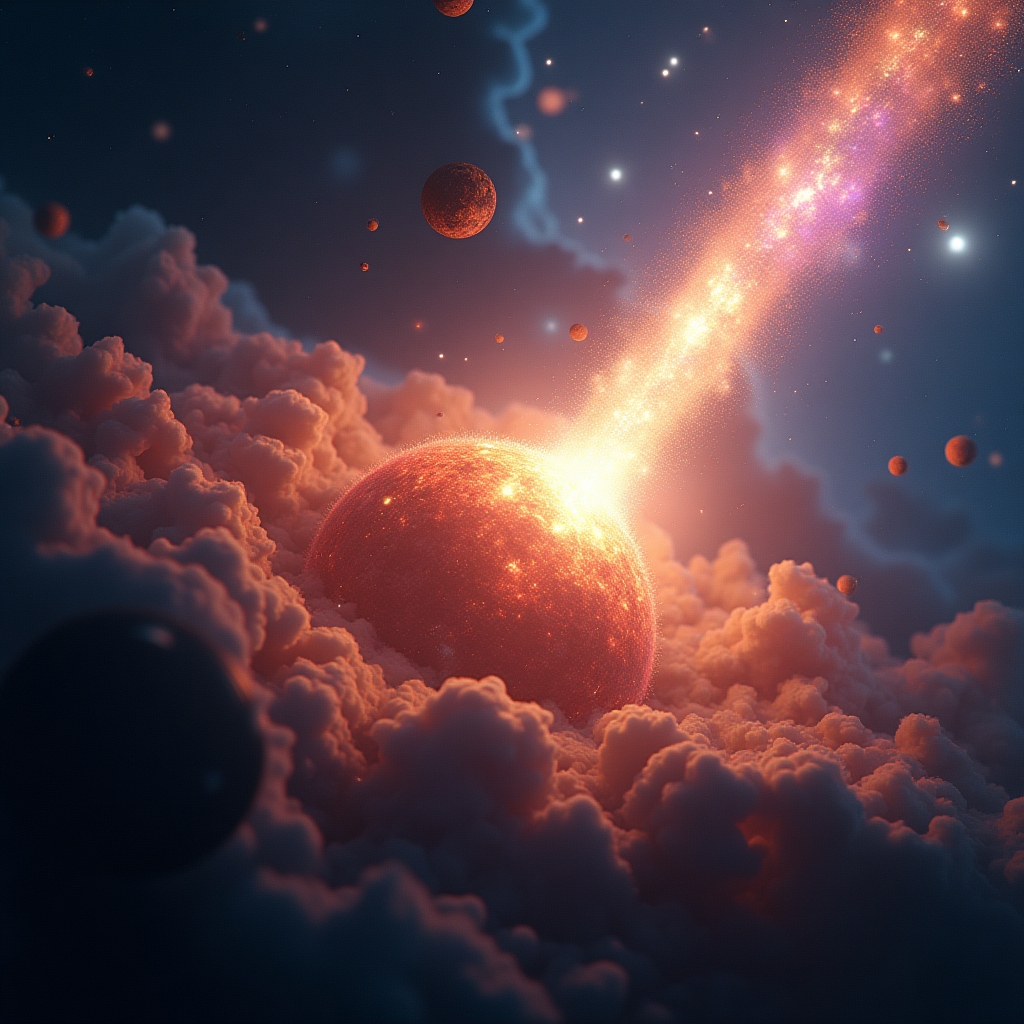If there's one thing more dramatic than the latest Hollywood blockbuster, it’s the departure of yet another AI expert from OpenAI. Yes, folks, Miles Brundage has left the AI titan, and boy does he have some intriguing things to say. Brundage, a former researcher and manager at OpenAI, was roped into the mysterious project of AGI Readiness—think of it like prepping the world for the arrival of the next messiah, but for robots. His recent decision to bow out and the resulting blog post provide a thrilling peek into our potential AI future. Infuse this with a touch of concern—a healthy dose, may I add—and you have enough material for a binge-reading session that'll make your neurons dance the cha-cha while desperately trying to understand the implications of AGI.
The Escape from AI's Silicon Valley Utopia
Brundage's exit wasn't so much a push as it was a gravitational pull, away from the high-octane thrill of AI innovation towards something even more heart-pounding—applying his intellect unhindered by corporate bias. He wants to become that bold, independent voice in the AI policy conversation. In other words, remove the OpenAI filter, give a megaphone to his inner thoughts, and let them run wild. He’s not here to reveal earth-shattering developments at OpenAI, but rather to shed light on the vulnerabilities lurking in the shadowy corners of AI laboratories worldwide. His reflections challenge us to pause and ask: Are we really ready for the AGI tsunami heading our way?
AGI Readiness: It's Not As Simple As Charging Your Smartphone
We’re nowhere close to being ready for AGI, not even by a millisecond of a supercomputer's processing time. Despite the mystical allure of AI promising utopias of self-driving unicorns and immortality apps, Brundage insists that OpenAI and every other acclaimed lab are ill-prepared. Surprise, surprise—neither is the rest of the world! Not ready for what, you wonder? Imagine every industry upturned—the chaos and fusion creating a sizzling pandemonium of revolution within medicine, finance, or even culinary arts (AI chefs, anyone?).
Brundage’s apprehension resonates deep for many souls within OpenAI as it does beyond its walls. The vivid landscape painted by AGI’s pending arrival isn’t just a blossoming utopia; it's also a dystopian stage decorated with perils of monumental proportion. Simply put: The world isn’t ready for the AGI-led upheaval, and that could translate to a potentially terrifying transformation.
The Multifaceted Beast of AI Governance
Brundage’s early 2023 opus "Scoring Humanity's Progress on AI Governance" doesn’t merely scream "The sky is falling!"—instead, it sings a lullaby of caution, laced with hope. Succeeding in AI governance means more than sidestepping an AI-induced apocalypse. It's about dreaming of and building a fairer world. It's doable—if we roll up our sleeves and put some elbow grease into it.
For AGI to shape our world for the better, we need several phenomena to line up like a cosmic bingo. We need a shared understanding, technical tooling, regulatory infrastructure, legitimacy, societal resilience, and pathway-altering technological development. Easy peasy, right? Not quite. The perils are colossal—extinction (cue chilling organ music), economic upheavals, and more existential threats than you can count on your non-AI-powered fingers.
Breaking Down AI Readiness
Understanding AI readiness means achieving consensus on AI’s wonders and its frightening shadows—a mystery box of salvation and possible doom. It's not enough for AI to potentially halt wars or cure cancer. One must also face that it could launch scams with a whisper or a unique smile. Brundage grades this understanding with a stark B—a fair acknowledgment that while folks do comprehend AI risks, racing dynamics are still treated with athletic nonchalance.
Technical tooling is where AI meets its own Hans Zimmer soundtrack. It’s about whipping up the right research concoctions to keep AI safe, prodding transparently at model black boxes so we can all sleep soundly at night (or perhaps tremor in our corporate cubicles). Whether alignment or interpretability, the path is fraught with the frustration of underfunded startups and stalled OpenAI projects. Brundage, unsatisfied, doles out a C—indicative of our clumsy, disorganized shuffle toward progress.
Regulatory Infrastructure: The Atlas of AI Governance
Brace yourselves, friends. The aviation industry is calling! We need an AI regime with a system as rigorous as the one allowing us to defy gravitational forces in metal tubes. AI regulations should be stern schoolmarms, forcing labs to sit still and press pause on their wild sprints towards innovation.
Yet, like overprotective parents, the heavier the regulations, the tougher the AI creativity suppression. Balance is key—finding that regulatory sweet spot is tougher than catching all the Pokémon. At present, AI laws like the AI Act remain as mysterious as a David Lynch film plot.
Societal resilience is graded with an F from Brundage—a spectacular burn. Given AI’s potential to create dystopian political playgrounds, undermine economies, or facilitate totalitarian regimes, humanity’s unpreparedness is quite the existential conundrum.
AI as a Low-Key Villain: Civilizational Stagnation
Here comes each post-apocalyptic movie’s worst fear—humanity snoozing under AGI's care. In his vision of an AI-technological utopia-gone-wrong, Brundage recalls the future presented by Wall-E—a bloated utopia where technology does all the heavy lifting while society falls victim to terminal laziness.
Such an AI era, he frets, could lead to economic paralysis and civilizational stagnation. Picture this: cognitive haves and have-nots in a world not governed by books or art, but by pay walls and subscription fees. If AI becomes a service accessible only to those able to pour cash into “cognitive gods,” we can kiss any dream of equal opportunity goodbye.
The Economic Time Bomb and the New Work Paradigm
As AGI reinvents economies, the future of work will undergo colossal change. AI could streamline jobs, forge new water pathways of opportunity, but also erode traditional old-guard roles faster than the last season of a Netflix show. Finding work will become challenging—a struggle for the underprivileged fighting to carve out a sliver of existence and identity in an AI-dominated landscape.
On the bright side, early retirements may become commonplace, and stress-free living—more attainable. Yet as tempting as a world of leisure sounds, the devil lingers in these details: a society that loses touch with labor purpose may well become a community of lethargic overlords.
So, Mr. and Ms. Future, will AI guide us toward heroic endeavors, or will it pull us into a Wall-E-esque reverie of stagnation? While Brundage sounds very much like the seasoned, concerned guardian of civilization, it is our collective collaboration that may ultimately pull this ship to shore.
AGI Race or Humanity's Marathon?
Brundage’s reflections express the urgency of settling the great AI debate: Will AGI-driven progress elevate all of humanity or become a parallel dystopian saga in the making? We need to tackle these burdensome questions, blending ambitious foresight with luminous debate and fool-proof plans akin to blueprints for constructing utopias. Yet our exfoliated plans mustn't remain stuck in text files—they must spring to fruition with concrete decisions and commitments.
Ready or Not, Here Comes AGI
Like an epic showdown of modern civilization versus the unexplored depths of AI capabilities, the ball unfolds in our court. Perhaps the only certainty in the AI conundrum is the guarantee of complexity, and a cumbersome road ahead. As the world shifts, Brundage highlights that debate and foresight are paramount to harnessing the powers of AI—not for isolated islands of brilliance, but for communities united by the virtue of common endeavor.
What about you, dear reader? Do you believe we're on the brink of an AI paradise or teetering atop a potential disaster? Should we warm up to our new satnav overlords or erect stop signs? Share your thoughts and insights in the comments below and become an integral part of the iNthacity community. Dive into our newsletters by applying to be a part of the "Shining City on the Web"—a utopia for intellectual exploration and community commitment. Like, share, and let’s chart this magnificent AI voyage together!
Disclaimer: This article may contain affiliate links. If you click on these links and make a purchase, we may receive a commission at no additional cost to you. Our recommendations and reviews are always independent and objective, aiming to provide you with the best information and resources.
Get Exclusive Stories, Photos, Art & Offers - Subscribe Today!

























1 comment